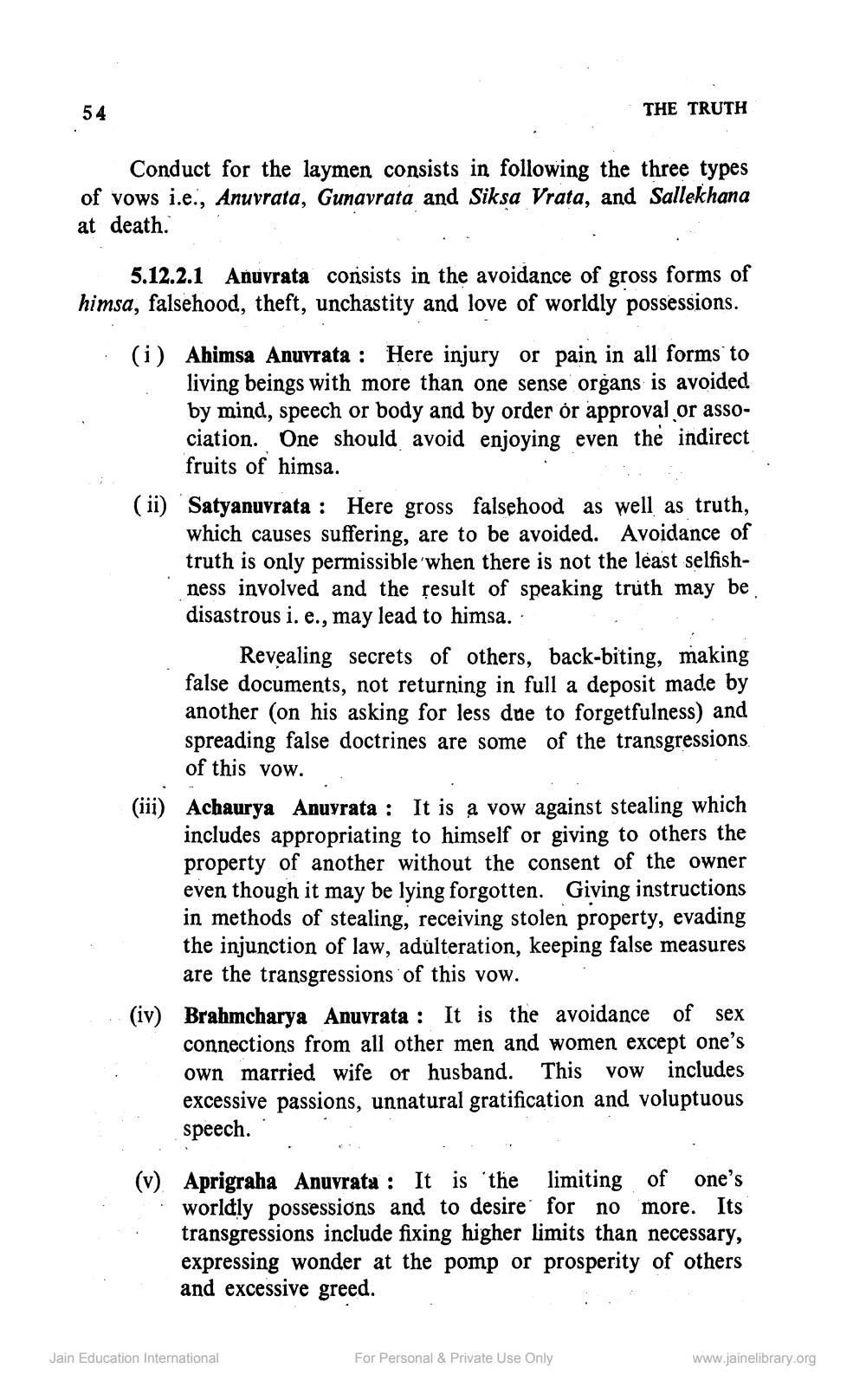________________
THE TRUTH
Conduct for the laymen consists in following the three types of vows i.e., Anuvrata, Gunavrata and Siksa Vrata, and Sallekhana at death.
5.12.2.1 Anuvrata consists in the avoidance of gross forms of himsa, falsehood, theft, unchastity and love of worldly possessions.
(i) Ahimsa Anuvrata : Here injury or pain in all forms to
living beings with more than one sense organs is avoided by mind, speech or body and by order or approval or association. One should avoid enjoying even the indirect fruits of himsa. Satyanuvrata : Here gross falsehood as well as truth, which causes suffering, are to be avoided. Avoidance of truth is only permissible when there is not the least selfishness involved and the result of speaking truth may be disastrous i. e., may lead to himsa.
Revealing secrets of others, back-biting, making false documents, not returning in full a deposit made by another (on his asking for less due to forgetfulness) and spreading false doctrines are some of the transgressions
of this vow. . (iii) Achaurya Anuyrata : It is a vow against stealing which
includes appropriating to himself or giving to others the property of another without the consent of the owner even though it may be lying forgotten. Giving instructions in methods of stealing, receiving stolen property, evading the injunction of law, adulteration, keeping false measures
are the transgressions of this vow. (iv) Brahmcharya Anuvrata : It is the avoidance of sex
connections from all other men and women except one's own married wife or husband. This vow includes excessive passions, unnatural gratification and voluptuous speech.
(v) Aprigraha Anuvrata : It is the limiting of one's
worldly possessions and to desire for no more. Its transgressions include fixing higher limits than necessary, expressing wonder at the pomp or prosperity of others and excessive greed.
Jain Education International
For Personal & Private Use Only
www.jainelibrary.org




